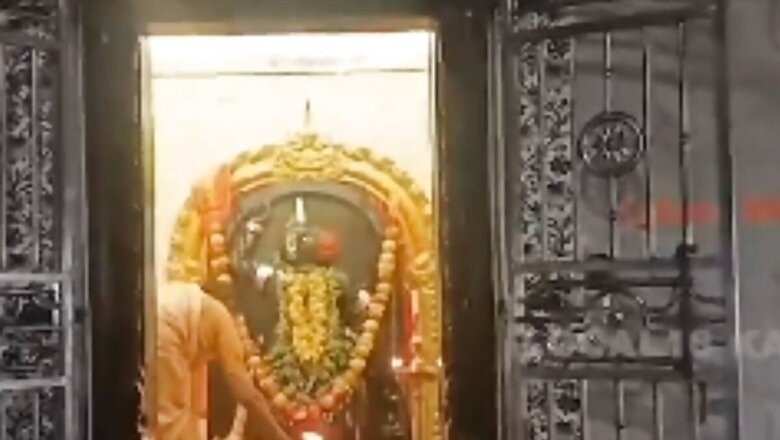
views
For Lord Hanuman, it is believed that girls should not touch him. A woman priest can’t offer seva to the god. He can only be worshipped by a male priest. But a woman has broken this stereotype. In Rudranjaneyya temple in Kansur, Sirsi, a woman, was appointed as a priest to worship Lord Hanuman.
According to reports, the construction of the Rudranjaneyya temple began with the inspiration of Shri Gangadharendra Saraswati Swamiji and Sadguru Shri Ramananda Swami Avadhuta. They were in charge of the temple and were used to perform the pujas, vows, and rituals to worship Lord Anjaneya. It was believed that all kinds of problems would be solved if these Swami performed pujas and offerings.
There is a surprising story related to the temple. Reports suggest that 12 years ago, for the first time, a woman priest was appointed in the temple. The name of the woman is Savitramma Shet. It is an exciting story that this ordinary woman, who was a coconut trader, got Lord Anjaneya.
Savitramma was in Ganagapura, a village in Karnataka; later, due to personal reasons, he came back to the town and travelled to Sirsi, Siddapura, Mundgod, and Banavasi for the coconut trade. One day Lord Anjaneya appeared to him in a dream and inspired her to build a temple. When the search was carried out according to the dream, surprisingly, Anjaneya, Shiva, Parvati, and Ganesha idols of the Kadamba era appeared with two inscriptions in Kanasuri.
Her philanthropy, which started in 2003, was realized in 2015. Yet it continues. They perform all kinds of puja-punuskaras to Anjaneya. By the grace of Lord Anjaneya, she is doing this dharma work even at the age of 65 and is an inspiration to the next generation.
Earlier Nandini Bhowmik, Ruma Roy, Semanti Banerjee, and Paulomi Chakraborty broke a centuries-old tradition. In 2021, this group of women will officiate over all rituals for the 66 Pally Durga Puja committee in Kolkata, which has long been a crowd-puller for its innovative ideas. The four Hindu priestesses set a new precedent in an area dominated by male priests, not only in West Bengal but other parts of the country.


















Comments
0 comment